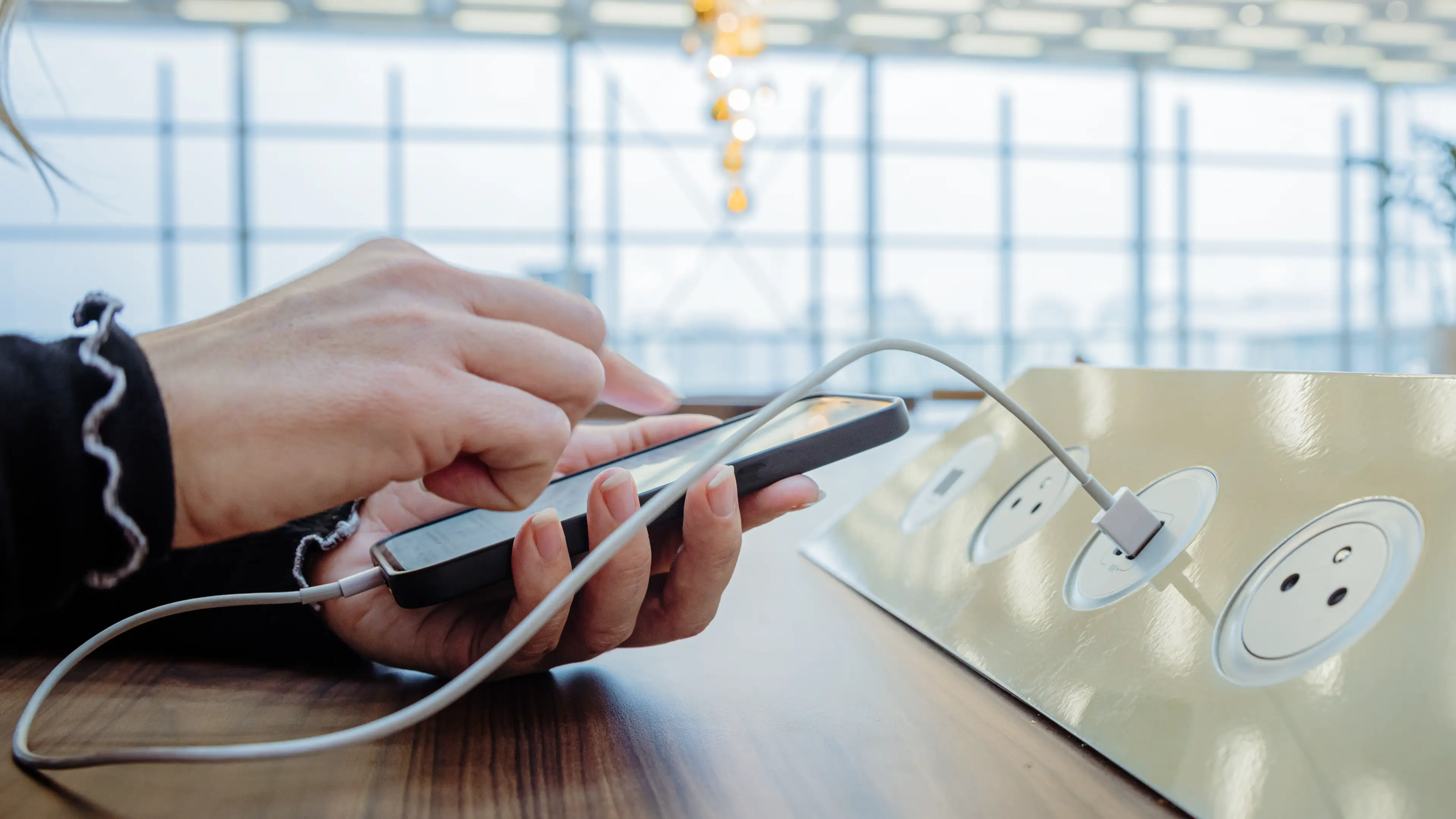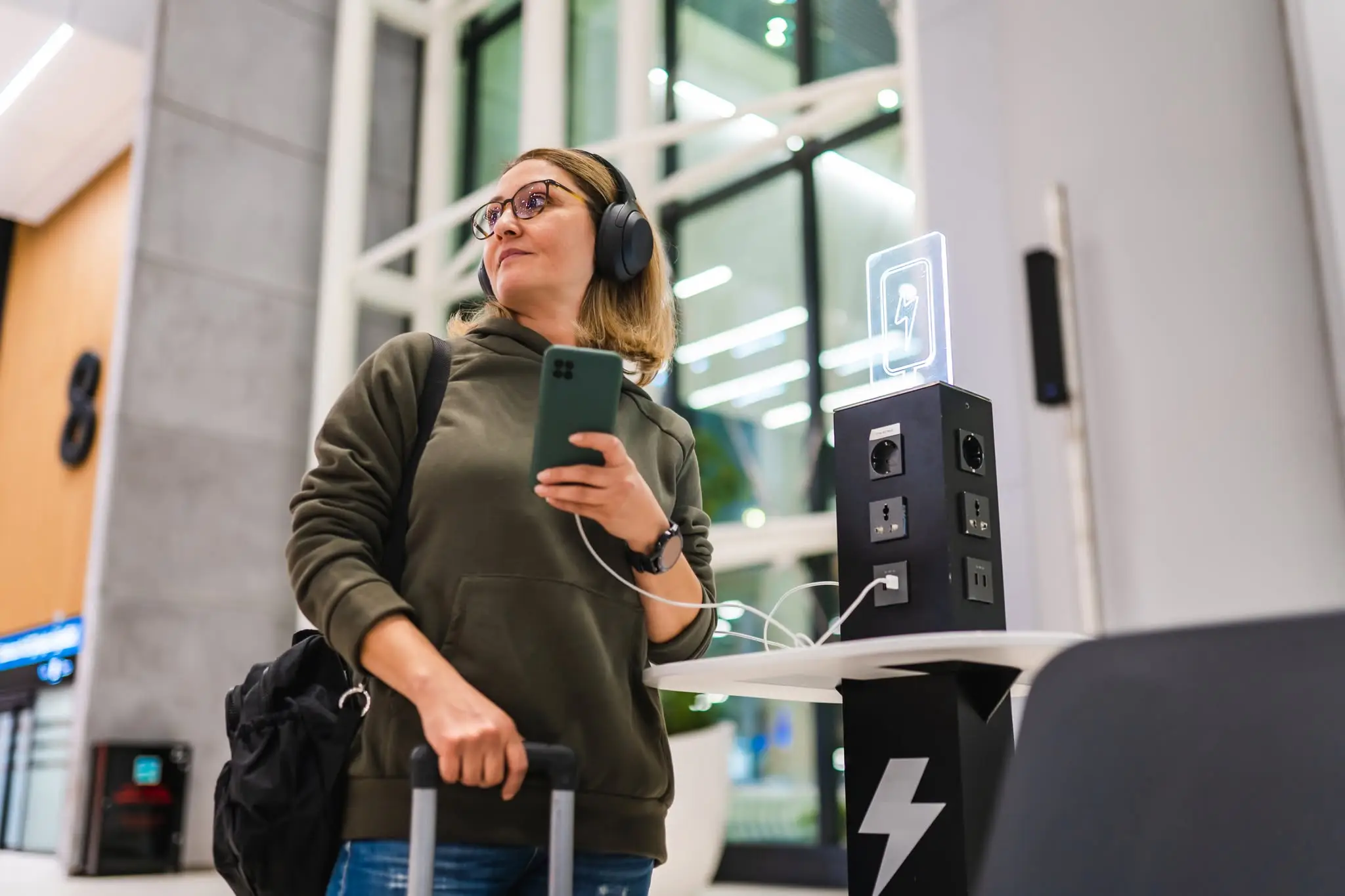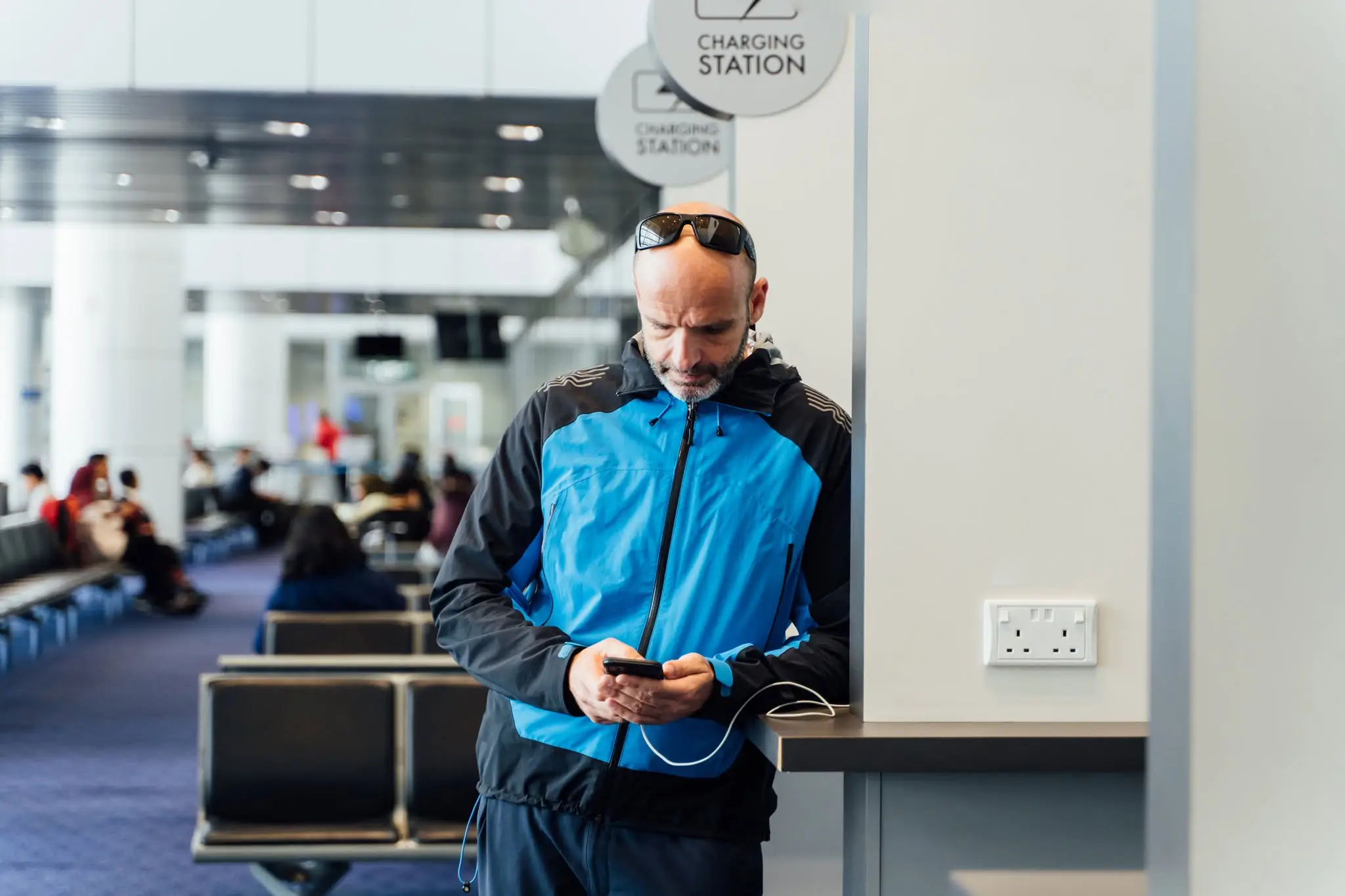
Have you ever been at an airport and suddenly, you notice your phone is about the die? If you thought about rushing to the nearest charging port - think again.
Don’t event consider charging it on the plane either.
Of course, you might think there’s no harm in charging your phone wherever you may be. After all, it’s only electricity, right?
Wrong.
Advert
There is a danger you’re not aware of which could end up compromising your phone and even see you out of pocket in the meantime.
That’s because it’s putting you at risk of malware infections or data breaches.

Just as you’d never trust an unknown network, or an odd email with a link attached, don’t trust USB ports either.
Professor Dali Kafaar, the executive director of the Cyber Security Hub in the Department of Computing at Macquarie University told The Canberra Times: "One thing I would never do is charge my phone using the USB port on a plane.
"It's very, very risky."
He went on to explain that the USB charging stations in public places like in airports and planes, are serious risks for something called ‘juice jacking’.
Juice jacking occurs when it steals or transfers data between devices, which can happen when USB ports are tampered with by someone who wants to steal the sensitive information from your device without you knowing.
Now, this information could be anything from personal emails, financial data, photos you have stored and even your passwords.
"What that means is when you are charging at a USB station, the USB ports do not just provide power to your device, they also allow transfer of data between devices," he shared. "When you plug your phone into any of those charging ports, the risk is that somebody could potentially access your private data."
The Federal Communications Commission is well aware of the risks posed by tampered USB ports and have even come up with ways you can avoid the risk.

It states on its website to prevent juice jacking:
- Using AC power outlets can help you avoid any potential risks, so be sure to pack AC, car chargers, and your own USB cables with you when traveling.
- Carry an external battery.
- Consider carrying a charging-only cable, which prevents data from sending or receiving while charging, from a trusted supplier.
- If you plug your device into a USB port and a prompt appears asking you to select 'share data' or 'trust this computer' or 'charge only', always select 'charge only'.
Security Everywhere, a security publication also explored the risk of juice jacking at airports, stating that it’s a very real concern.
The company shared: “Even if a charging station isn’t compromised, connecting your phone to a public port can still lead to unintentional data leaks.”
To make sure you’re protected, they suggest using your own portable charger, and even disconnecting your data transfer settings just to be sure that you’re out of harm’s way.
So, when you’re on your next trip, make sure to take this advice.
Topics: Technology, American Crime Story, Travel
